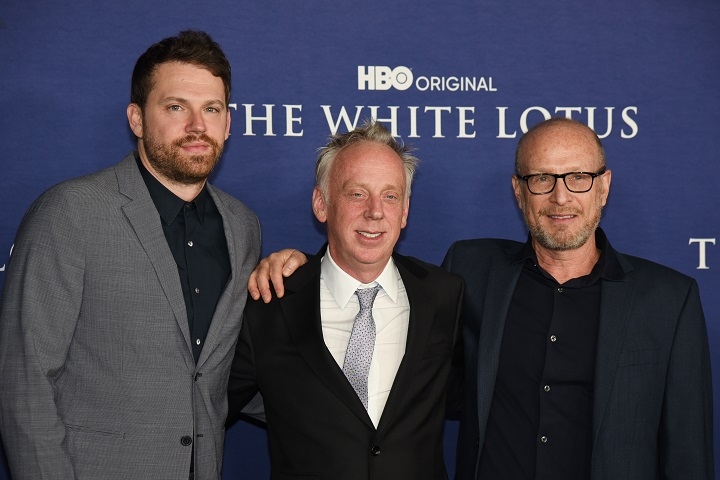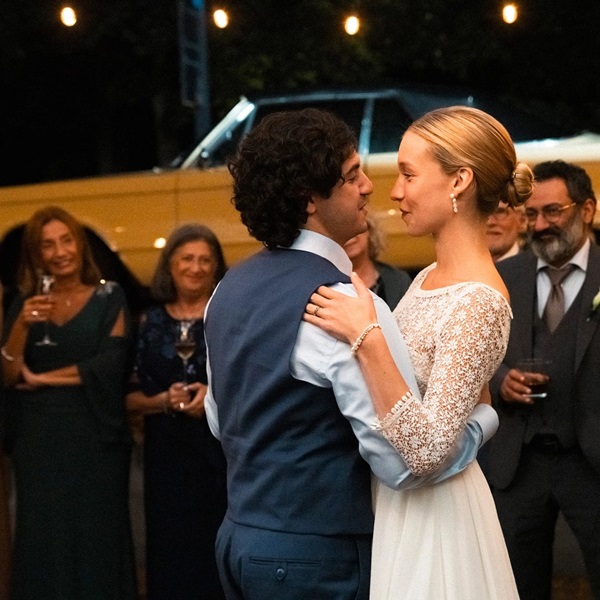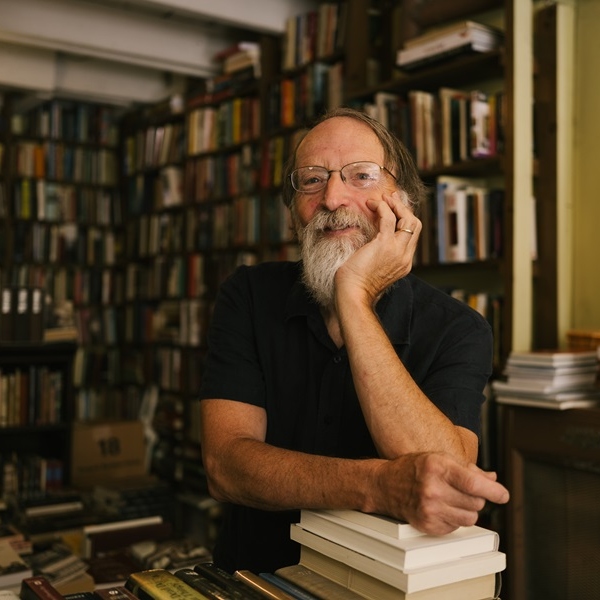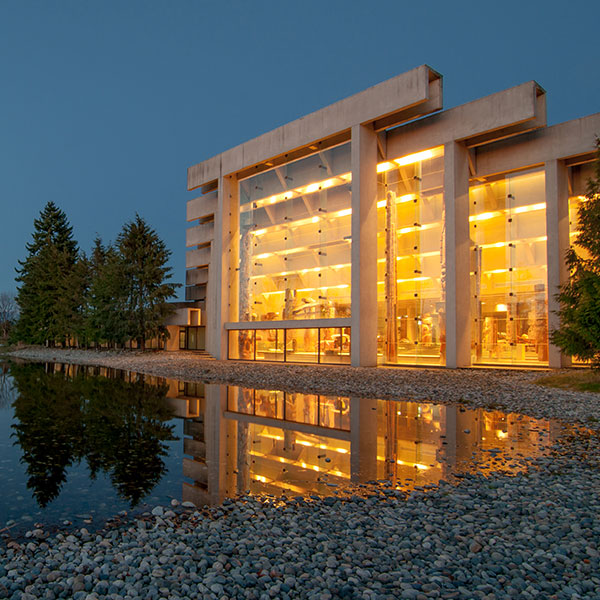It turns out there is a downside to producing one of the hottest shows on television, a series that has collected 15 Emmys, won over a devoted fan base, and garnered dozens of rave reviews from TV critics.
People expect you to keep being good.
“There is a pressure that comes with that,” says David Bernad, BA’04, one of the executive producers of The White Lotus, which recently launched its third season.
“We don’t want to let people down. We want each season to be distinct, we don’t want it to feel too familiar, but we also want it to be satisfying [for the audience]. We want people to love each season.”
Bernad says The White Lotus production team follows the example set by writer/director Mike White, the show’s creator.

“I don’t know anyone who works harder than Mike does, or who cares more than he does. And I try to match that. We worked on season three for two years, and getting through that felt like you’ve run a marathon. But we’re doing what we love and we’re very fortunate to be able to make [the show].”
The road to being a producer
Making films and TV shows is what Bernad has wanted to do since he was a teenager in Washington, DC, and had the opportunity to visit a film set (it was First Kid with Sinbad). There are plenty of young people who have dreamed about careers in Hollywood before moving on to something else. For Bernad, that dream never faded.
“I knew I wanted to be a producer when I was at McGill,” he says. “The first producing I did was in Montreal.” He applied for grants from Telefilm and MuchMusic to produce music videos. He organized a big Frosh Week party and worked on the McGill Winter Carnival. He was involved with fashion shows and DJ parties. As he worked on his industrial relations degree, he was also developing expertise in how to put events together.
While studying at McGill, he landed a summer internship with Warner Brothers. A producer there mentioned to Bernad that one way to break into the industry was to get a job in a Hollywood mailroom and work his way up.
“I became obsessed with that idea, that romantic version of Hollywood,” says Bernad.
After graduating from McGill, it was time to put the plan into action. He spent the summer doing door-to-door sales and working at a basketball camp, saving up his money for the move to Los Angeles.
“I thought I was hot [stuff] and I packed up my car and moved to L.A. I worked every connection that I could. I assumed getting a job would be easy.”
He soon realized that it might be a little harder than he imagined.
Starting off in the mailroom
The job search wasn’t going too well, but Bernad did hit it off with a casting director who couldn’t afford to offer him a position. Bernad struck a deal. He’d work for the casting director for free if he helped Bernad get interviews for mailroom jobs at all the big talent agencies in town.
“I gave them about five months of free work, and they did their part,” says Bernad. “They helped me get the job interviews. I got rejected at William Morris. I got rejected at CAA. At some point, UTA was the last agency left. By then, I was a little desperate.”
He secured a second interview at UTA and had the sense that things were going well. But there wasn’t a firm offer on the table. “I fibbed and said I had an offer [from another agency]. The guy looked at me and said, ‘You’re hired.’”
Bernad spent the first few months delivering packages and mail to UTA agents – “This was before everything was emailed” – using the opportunity to make connections. “I treated UTA and the mailroom as a kind of grad school,” says Bernad. “I had access to everything. It all goes through [the agencies]. I read every script, and I watched every movie.” He moved up the ranks while thinking about what the next step should be.
“I wanted to be on a set and work for a director.”
“You’ll be seeing characters who grew up with these very Western ideas about religion and spirituality bumping up against the spirituality of Thailand and Buddhism as they try to answer some of the bigger questions in life.”
David Bernad, executive producer of The White Lotus
He was mulling an offer to work as an assistant for a director when he went out for dinner with a woman he was friendly with. She was Mike White’s assistant, and she shared the news that she was stepping away from the position. “She said you should work for Mike.”
Bernad met White. The interview didn’t go smoothly. “I was wearing these cheap, ugly shoes and Mike really hated them. He didn’t want to hire me because of those shoes.” White’s assistant lobbied on Bernad’s behalf. “She made sure that Mike didn’t meet anybody else,” says Bernad. “She basically forced him into hiring me and we’ve been working together ever since.”
Bernad earned White’s trust – to the point that the two eventually became production partners.
“I love doing the things that Mike doesn’t like doing – the parts of the job that can be more tedious or not as fun. And I think he appreciates that. We work well together. We have very similar tastes in film and TV.”
Their first collaboration was on another critically acclaimed HBO series – the Laura Dern show Enlightened. They worked together on the Ben Stiller film Brad’s Status. And then, along came The White Lotus.
Why The White Lotus blossomed
Bernad has his own thoughts about why the show has been such a big hit.
“Mike is a brilliant writer, and he creates relatable characters,” says Bernad. “He writes about characters who are going through existential moments in their lives, and I think everyone can relate to that.
“I also think the ensemble nature of White Lotus gives [an audience] different access points to the show,” adds Bernad. “If you aren’t interested in the story of Armond [the resort manager in season one], you might be interested in Tanya’s story or in the other characters.”
Another factor in the show’s success is the setting. The resorts in the fictitious White Lotus chain are located in some of the world’s most beautiful spots and the series does them justice. The first season was set in Hawaii. The second season took place in Sicily, Italy. Season three focuses on Thailand.
“We travel the world for this show, which is amazing, but it can be challenging too,” says Bernad. “You have to adapt to the local culture, and making a show in Hawaii is very different from making a show in L.A., which is very different from making a show in Sicily or Thailand. There is always a learning curve attached to that. We have an immense number of parts to cast and locations to decide on. It’s like a jigsaw puzzle. And we have a very small producing crew. There is me, our line producer Mark Karmine and Mike, so the three of us are juggling all these aspects.”
When East meets West
The new season takes place in Thailand, a country that many in North America know little about.
“The only TV show or film that I can think of [from North America] that takes place in Thailand is The Hangover 2. It’s a great movie, but Bangkok is kind of depicted as this ‘anything goes’ party city, a Vegas on steroids,” says Bernad. “It is an incredibly complex, incredibly beautiful country, and we wanted to touch on many of the aspects of its culture within the story we’re telling this season, in a way that we hope feels authentic.
“As long as I’ve known Mike, he has been very curious about Buddhism and Eastern philosophies,” adds Bernad. “With this season, you’ll be seeing characters who grew up with these very Western ideas about religion and spirituality bumping up against the spirituality of Thailand and Buddhism as they try to answer some of the bigger questions in life about identity and purpose. Each of these characters is challenged in a very specific way.”
Bernad, whose other production credits include the TV shows Superstore and Jury Duty, spent his early years in Montreal before the family moved to Washington. He relished the opportunity to live there again while he studied at McGill. “Montreal is an incredible city. It’s my favourite city in North America,” he says.
As a producer, he successfully lobbied to have one of the shows he worked on, The Bold Type, move its production to Montreal after it shot its pilot episode in Toronto. “That gave me an excuse to spend my summers in Montreal.”
Bernad describes his father Peter Bernad, BSc’70, MDCM’74, as a very proud McGill graduate.
“There was never a moment in my life where I thought I wasn’t going to McGill. My dad instilled that in us at an early age,” says Bernad. “When I was old enough to apply to colleges, my dad had a frank conversation with me. He said, ‘You can go anywhere you want, but you’re paying for it. If you go to McGill, I’ll pay for it.’ I have two brothers, and we all went to McGill.
“I have taken my dad as my ‘date’ to the Emmys. I have taken him to Cannes, to Sundance. But the biggest accomplishment of my life for him will be seeing my name in the McGill alumni magazine.”


